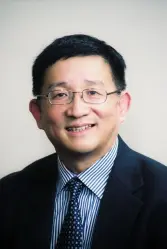EXECUTIVE SUMMARY
This essay examines the role of the Western-educated Chinese returnees in the formation of China’s foreign policy and strategic thinking.
Main Argument
Some widely perceived contradictions in China’s foreign policy and Sino-U.S. relations might be attributable to the paradoxical roles played by Western-educated returnees. These contradictions include: (1) the gap between Hu Jintao administration’s pronounced commitment to “all directional diplomacy” and the actual excessive emphasis placed on China’s relations with the U.S.; (2) the tension between broad U.S.-Sino cooperation, on the one hand, and the widespread view among Chinese elites concerning a “U.S. conspiracy against China,” on the other; and (3) the irony that a sustained, three-decade effort on the part of the United States to help promote educational exchanges has instead led to a relationship still rife with misunderstanding.
Policy Implications
There are several ways for U.S. policymakers to better engage with this emerging power’s political and intellectual elites:
- By initiating an empirically grounded overall assessment of the effectiveness and limitations of the U.S. approach to China over the past three decades
- By promoting a policy discussion of whether sweeping educational exchanges between the two countries can truly contribute to mutual reassurance
- By becoming more cognizant of the sometimes fractious policy and political debates in China, especially the views of influential opinion leaders
- By encouraging more exchanges between NGOs so as to enable Chinese professionals to come to the United States for one- or two-year periods as observers or trainees.
Download the full paper at nbr.org »
The Brookings Institution is committed to quality, independence, and impact.
We are supported by a diverse array of funders. In line with our values and policies, each Brookings publication represents the sole views of its author(s).



